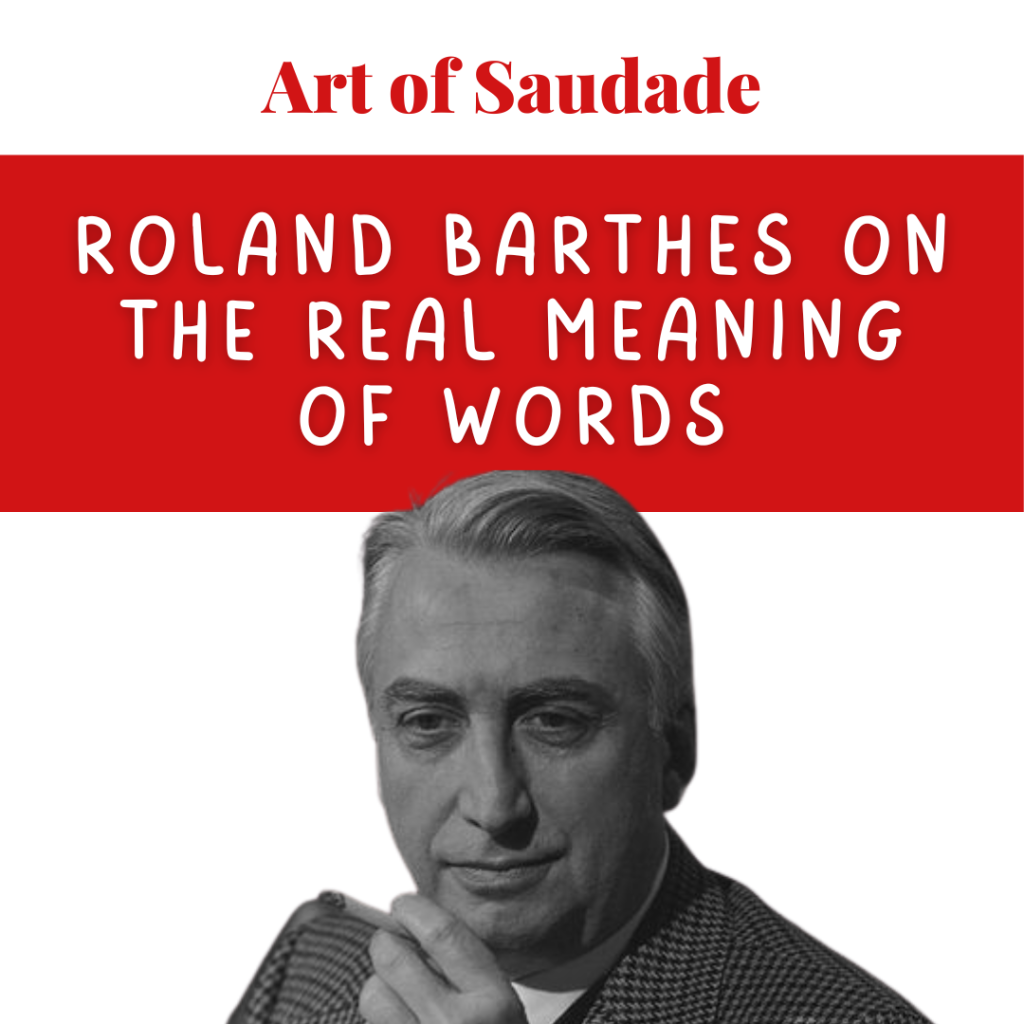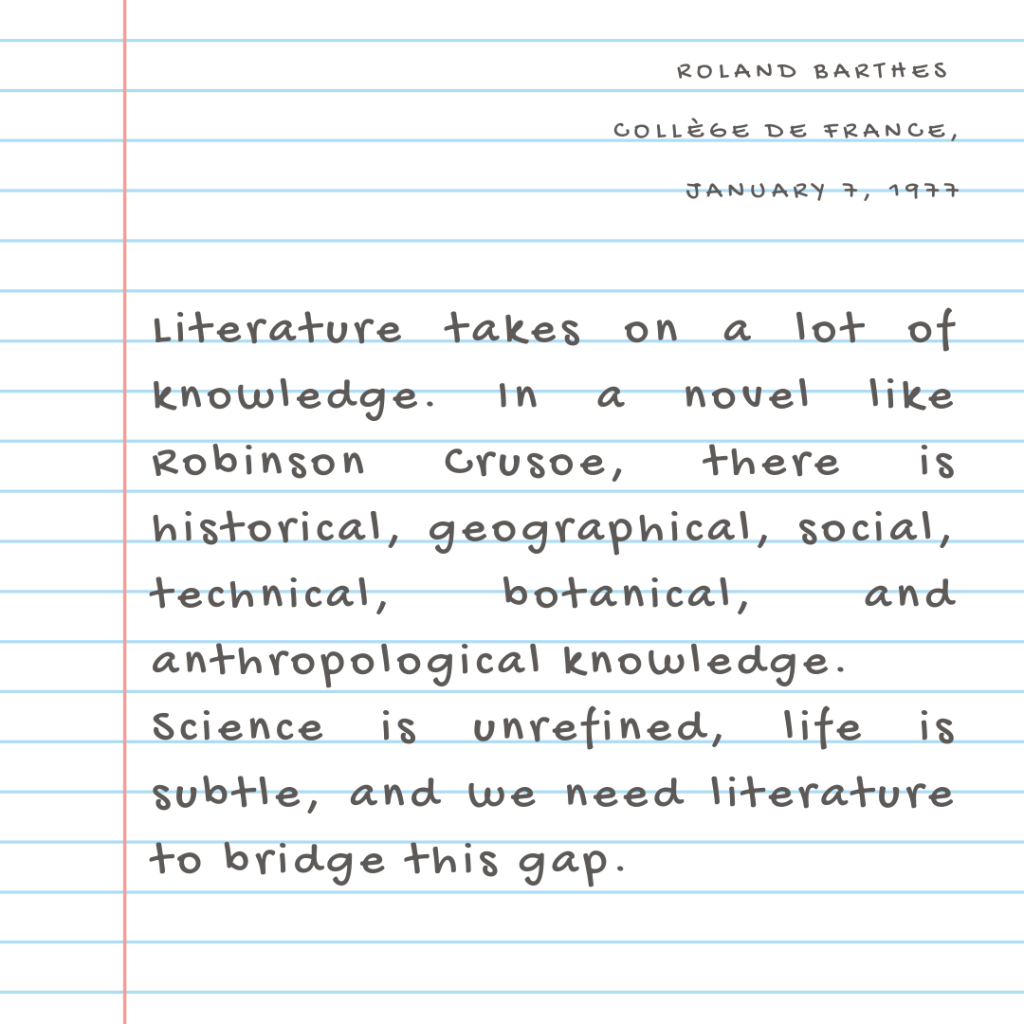
Who was Roland Barthes?
Roland Barthes was born in the middle of World War 1, an event that marked him for life. Raised during the bloodshed that devastated Europe, Roland found refuge in literature. He dedicated his life to literary creation and criticism and, by the end of his 40s, he managed to publish his collection Mythologies, where he gathered myths of popular culture. He is also known for the books The Death Of The Author and Writing Degree Zero.
See who else took refuge from wars in literature:
In his inaugural lecture given on January 7, 1977, at the prestigious Collège de France, Roland Barthes shared his thoughts on the limits of language and the art of literature.

Can we truly express ourselves if language is limited? Roland Barthes reminds us that Ernest Renan, a French linguist, believed that the French language, formed by reason, compelled the expression of democracy. Barthes, however, doesn’t agree with this idea. Language, he says, is neither reactionary nor progressive; it is simply: fascist; for fascism is not to prevent saying, it is to oblige to say.
Therefore, there can only be freedom outside of language. Unfortunately, human language has no exterior: it is a closed door. All that remains is to cheat with language, to cheat the language. And this “salutary cheating” is what Roland Barthes calls literature.
In French, I am obliged to always choose between the masculine and the feminine, the neutral or the complex are forbidden to me; in the same way, I am obliged to mark my relation to the other by resorting either to the tu (you informal) or to the vous (you formal): the affective or social suspense is refused to me. Thus, by its very structure, language implies a fatal relation of alienation. To speak, and all the more so to discourse, is not to communicate, as is too often repeated, it is to subjugate: all language is a generalized reaction.
What is the power of literature?
Barthes says that, if by some excess of socialism or barbarism, all our disciplines should be expelled from education except one, it is the literary discipline that should be saved, because all the sciences are present in the literary creation.

Roland Barthes calls this literary power Mathesis (from Greek: μάθησις, mathesis, “science, learning”). Finally, literature strives to represent reality and this is called Mimesis, the power of representation.
Writing, he continues, is found everywhere where words have flavor (In French, knowledge (savoir) and flavor (saveur) have the same Latin root).
“Writing makes knowledge a feast”
– Roland Barthes
Subscribe to receive new posts!
Want to support the blog?
Buy me a coffee ☕
Make a monthly donation
Make a yearly donation
Choose an amount
Or enter a custom amount
Your contribution is appreciated.
Your contribution is appreciated.
Your contribution is appreciated.
DonateDonate monthlyDonate yearly
